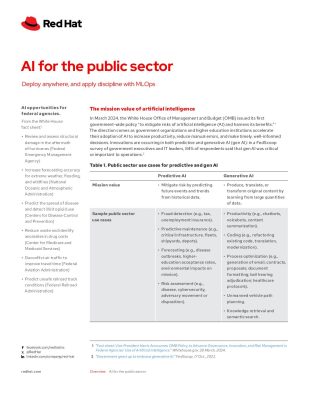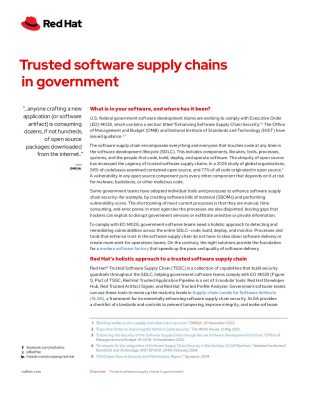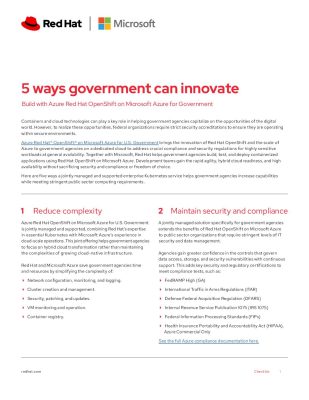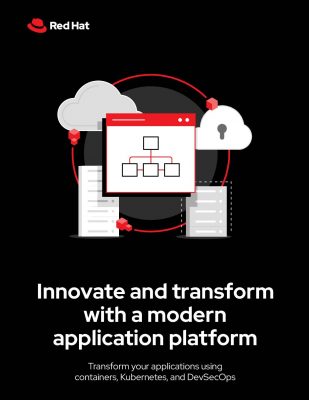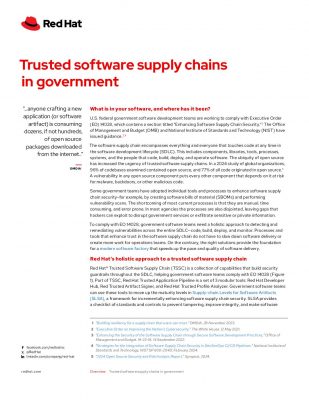Highlights:
- When selecting a managed cloud service provider, scrutinizing their security and compliance levels becomes paramount.
- Selecting a suitable managed service provider in cloud computing is crucial, as they should optimize your cloud management processes without demanding an exorbitant financial infusion.
Efficiently steering the cloud ship is the bedrock for realizing the digital expansion you envision. A top-notch cloud-managed service provider is your ultimate ally in this arena.
According to a report by Fortunately, a staggering 49% of enterprises affirm that they can now laser-focus on core business operations while ensuring the seamless operation of their cloud environment, courtesy of the myriad services their chosen cloud managed service providers bring to the table.
The linchpin, however, lies in the meticulous selection of a cloud managed service provider—a decision that demands thorough contemplation. Consider this guide your North Star in making the right call to dissect the pivotal factors that should sway your choice of cloud service providers. For now, let’s start with the basics.
What Is a Cloud Managed Service Provider?
Navigating the complexities of cloud-based infrastructure is no small feat, and that’s where professional third-party service providers come into play. Outsourcing to these experts allows businesses to keep their focus squarely on operations.
Managed cloud services enhance operational efficiency and bring cost benefits by alleviating the need for extensive in-house IT talent, opting for a budget-friendly pay-per-use model instead. The stakes are high regarding cloud infrastructure investments, as any management misstep could spell disaster for a business.
The repercussions extend to revenue, especially during a cloud infrastructure breakdown. Recognizing the challenging nature of this task, it makes strategic sense to delegate the operational responsibilities to the best managed cloud service providers. It’s not just a smart move; it’s a safeguard against potential business pitfalls. But on what grounds do you pick a provider? Are there any factors that you’ve got to keep in mind?
What Are the Factors to Consider While Choosing Top Managed Cloud Service Providers?
In the era of externalized IT systems, choosing the right cloud provider cannot be overstated for long-term success. Yet, the selection process becomes a critical challenge in a vast market with many providers offering services.
The options seem boundless, from industry behemoths like Microsoft, Amazon, and Google to smaller, niche players offering specialized services. The question then arises – how you choose managed services in a cloud environment that meets your requirements:
-
Expertise
The diverse landscape of cloud computing models, including PaaS, IaaS, SaaS, and more, demands profound expertise from a cloud service provider. Enterprises often harness multiple cloud computing models within their operations, making it imperative for a managed service provider to align its offerings seamlessly with the varied computing goals of an organization.
The ability to navigate and optimize across these different models underscores the comprehensive expertise required to manage the intricacies of modern cloud environments.
-
Proven experience
Effectively managing a multi-cloud environment poses considerable challenges, and seasoned vendors are adeptly equipped to handle this complexity. That’s precisely why partnering with an experienced cloud service provider is the optimal course of action.
-
Cybersecurity
The escalating global concerns about data security management is undeniable. According to a report by IBM, the global average cost of a data breach in 2023 amounted to USD 4.45 million, marking a 15% increase over the span of three years. When selecting a managed cloud service provider, scrutinizing their security and compliance levels becomes paramount.
-
Full stack of technologies
Addressing diverse cloud computing needs requires deploying robust technologies within the cloud infrastructure. It’s not just about meeting the requirements of current applications; the deployed cloud infrastructure should align with the futuristic technological needs of organizations.
A forward-thinking service provider with a well-defined future roadmap ensures seamless alignment with evolving cloud computing trends. This strategic alignment is crucial for businesses that demand continuous innovation to adapt, evolve, and thrive in an ever-changing landscape.
-
Performance based SLAs
The responsibility of defining and delivering basic service level agreements (SLAs) tailored to your business needs lies with the service provider. Additionally, the provider must actively monitor and manage any changes to the applications, offering comprehensive performance reports.
These reports are pivotal in facilitating improvements to your service, ensuring a dynamic and responsive partnership between the provider and your business.
-
Automated approach
Service providers should leverage a comprehensive suite of tools, automated capabilities, and effective collaboration models to enhance quality and productivity while minimizing human intervention. Sophisticated back-end technology should seamlessly orchestrate the migration process and ongoing management tasks.
Critical aspects such as workload categorization, priority assignment, incident escalation, and remediation must be efficiently managed through well-defined and automated processes established by the provider. This approach not only streamlines operations but also ensures high service consistency and reliability.
-
Customer support
A reputable managed service provider should prioritize reliable customer support and offer proper assistance as part of the SLA. Including 24×7 tech support is crucial for organizations, ensuring prompt troubleshooting of all technical issues.
-
Reasonable pricing
While managing cloud infrastructure may appear challenging, it doesn’t necessitate spending the entire operational budget. The key is to invest a reasonable amount that aligns with your budgetary constraints.
Selecting a suitable managed service provider in cloud computing is crucial, as they should optimize your cloud management processes without demanding an exorbitant financial infusion. Striking the right balance ensures efficient cloud management within budgetary constraints.
Now that we have an idea what we’ve got to prioritize while choosing our service providers, let us have a look at the services that are offered by such cloud solution providers.
What Types of Services Are Offered Through Cloud and Managed Service Providers?
Cloud service providers typically offer services in an on-demand, self-provisioning model, allowing customers to access and pay for cloud-based services based on their needs. Billing structures often involve subscription options, such as monthly or quarterly plans.
To stand out in the market, some cloud service providers differentiate themselves by customizing their offerings to meet the specific requirements of vertical markets. These tailored cloud services may include industry-specific functionality, specialized tools, or features designed to assist users in meeting particular regulatory standards, providing a more targeted and industry-specific approach. Here are the most common services that are provided by cloud managed services providers:
- Application support: Application support services encompass a comprehensive suite of support for applications operating in the cloud. This includes services from initial design and deployment phases to ongoing maintenance, ensuring cloud-based applications’ seamless and efficient functioning.
- Security and compliance: Cloud managed IT services are pivotal in delivering comprehensive security, ensuring compliance, and safeguarding data protection for cloud infrastructure and applications. These services encompass a range of measures and practices to mitigate risks, adhere to regulatory requirements, and fortify the overall security posture of cloud-based systems.
- Automation: Automation services play a crucial role in streamlining the provisioning and management of cloud services. They enable automated processes for tasks such as patching, configuration, and deployment, ensuring efficiency and reducing manual intervention in managing cloud resources.
- Monitoring and management: Cloud managed services offer real-time monitoring and management capabilities for cloud infrastructure, applications, and services. This ensures proactive identification of issues, efficient resource allocation, and continuous optimization to maintain optimal performance and reliability.
- Infrastructure support: Infrastructure support services offer specialized expertise in maximizing the utilization of cloud infrastructure. These services provide valuable guidance on optimizing cost and performance, ensuring that organizations make informed decisions to achieve efficiency and effectiveness in their cloud environments.
- Backup and disaster recovery: Cloud-managed IT services are instrumental in delivering robust backup and recovery solutions. These services are crucial in safeguarding data by implementing effective backup strategies and ensuring a prompt and secure recovery process during data loss or system failures. This ensures the resilience and continuity of business operations in the cloud environment.
- Consulting: Cloud services often extend their offerings to include consulting services. These services assist companies in gaining a deeper understanding of the best practices and strategic approaches for leveraging cloud technology. Consulting helps organizations make informed decisions, align their cloud usage with business goals, and optimize their overall cloud strategy for enhanced efficiency and effectiveness.
- Database management: Database management system services offer specialized expertise in the design, deployment, and ongoing management of databases within a cloud environment. These services ensure that databases are configured optimally for performance, security, and scalability, providing organizations with the necessary support to leverage cloud-based database solutions efficiently.
Closing Words
Selecting a managed cloud service provider involves meticulously considering factors such as expertise, experience, cybersecurity measures, technology stack, performance-based SLAs, automated capabilities, customer support, and reasonable pricing. Striking a balance between innovation and cost efficiency is crucial for businesses navigating the complex landscape of cloud services.
Once the right provider is chosen, services typically include application support, security and compliance measures, automation, monitoring and management, infrastructure support, backup and disaster recovery solutions, consulting services, and specialized database management. These services, tailored to specific industry needs, underscore cloud-managed service providers’ pivotal role in ensuring efficient, secure, and optimized cloud operations.
Enhance your expertise by accessing a range of valuable cloud-related whitepapers in our resource center.

